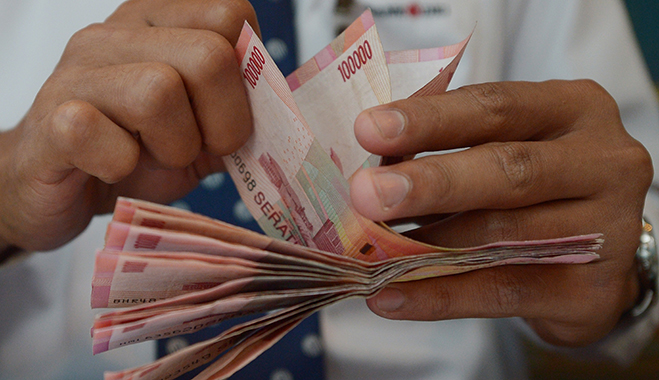
The rupiah dropped 1.9 percent against the dollar in Jakarta to 12,698, according to Bloomberg, indicating a 16-year low and marking the biggest fall since the start of August. It’s down 10 percent from its rate against the dollar in July.
The Indonesian currency is feeling the effects of a stronger dollar, which has been boosted in anticipation of the Federal Reserve’s likely decision to raise interest rates in the US in 2015.
The rising interest rates next year could mean further bad news for Indonesia
The rupiah has been further weakened by local firms buying dollars to pay back foreign loans and a slump in holiday trading, the FT reports.
“Year-end dollar demand from local corporations as well as flows related to recent selling of bonds seem to be weighing on the currency,” Shigehisa Shiroki of Mizuho Bank in Tokyo told Bloomberg. 10.09trn rupiah ($795m) in foreign investment was withdrawn in early December, the site reports.
Indonesia was already dealt a blow in 2013 when investors began withdrawing money from the country following the Fed’s warning that it would start to pull back from its aggressive quantitative easing policy. The rising interest rates next year could mean further bad news for Indonesia – largely reliant on overseas investment – as more funds are pulled.
“The impact on the bond and equity markets and the real economy will be negative,” Standard Chartered economist Fuazi Ichsan told the FT, adding that Indonesia’s central bank must either “intervene more aggressively in the foreign exchange market and shrink its reserves” or increase the overnight deposit rate, which currenty lies at 5.75 percent. Lending rates have been risen to 7.75 percent.
President of Indonesia, Joko Widodo, is set to reduce subsidies for fuel, which were boosted by over 30 percent earlier in the year. It’s hoped Widodo will bring in other economic reforms to boost the economy and protect it from a further battering.


